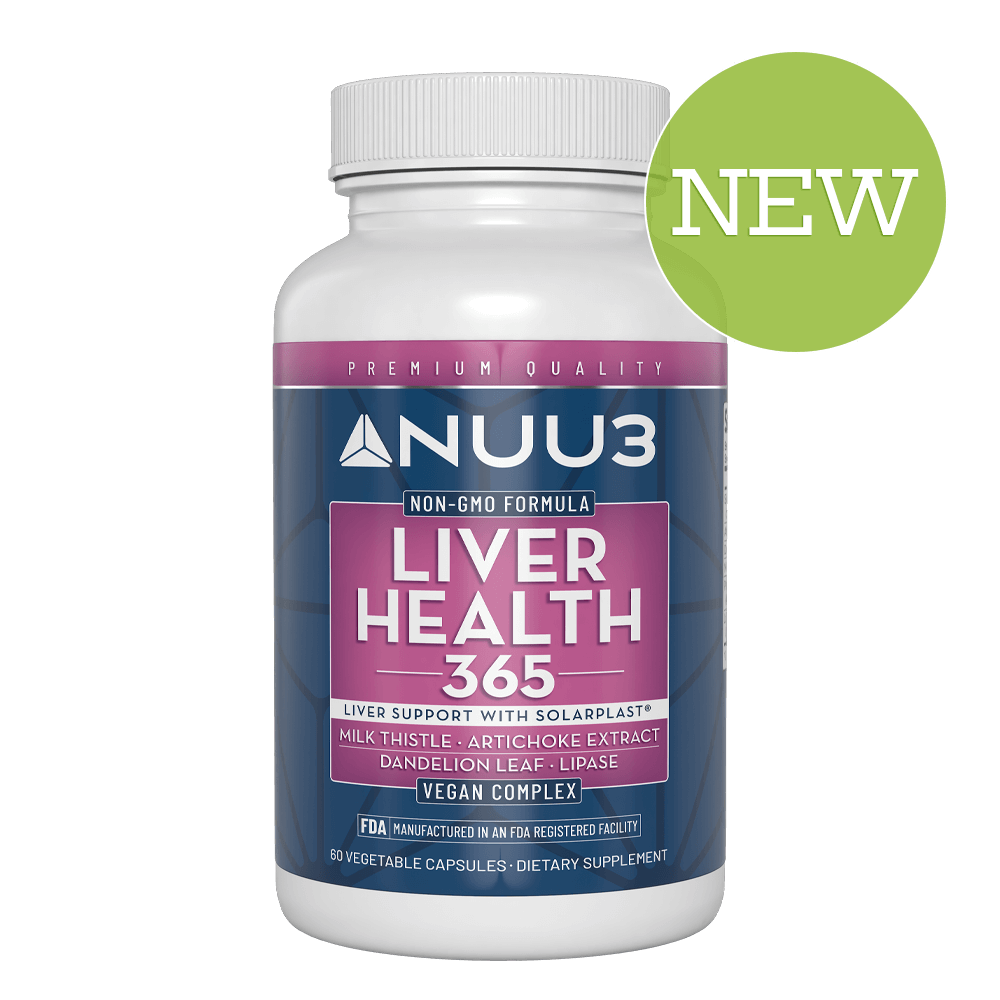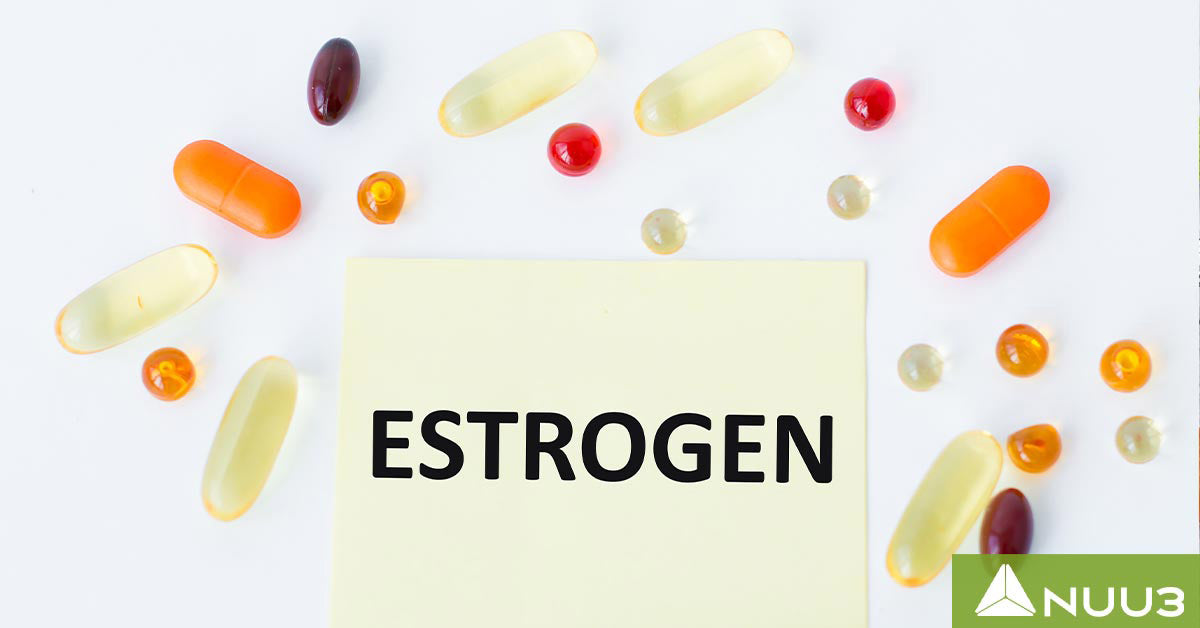Overview
Low estrogen levels occur when the body doesn't produce enough of the hormone estrogen, which is crucial for regulating various bodily functions. This condition can affect menstrual cycles, bone density, and overall health. Symptoms may include hot flashes, mood swings, and fatigue. Understanding and managing low estrogen is essential for maintaining well-being and addressing related health concerns.
What does it mean to have low estrogen?
Having low estrogen means your body is not producing enough of this crucial hormone, which affects various physiological processes. Estrogen is essential for regulating menstrual cycles, maintaining bone density, and supporting cardiovascular and cognitive health.
Who is Most Affected by Low Estrogen?
Low estrogen primarily impacts women, particularly during significant hormonal transitions such as menopause. As estrogen levels decline, symptoms such as hot flashes, night sweats, and mood swings become more common.
One notable effect of low estrogen is menopause fatigue, which can significantly impair daily functioning and overall quality of life. This fatigue can stem from disrupted sleep patterns, hormonal imbalances, and the body’s adjustment to reduced estrogen levels. Addressing these symptoms through lifestyle changes, hormonal therapies, or other treatments can help manage menopause-related fatigue and improve well-being.
How Does Low Estrogen Affect the Body of Women or AFAB Individuals?
Low estrogen can significantly impact the body of women or AFAB (assigned female at birth) individuals in several ways. Estrogen plays a crucial role in regulating reproductive health, bone density, and metabolic functions. When estrogen levels drop, especially during menopause, it can lead to a range of symptoms and changes.
One common effect is weight loss after menopause. As estrogen decreases, metabolism often slows down, making it harder to maintain or lose weight. Additionally, low estrogen can lead to changes in fat distribution, often resulting in increased abdominal fat. Other effects include hot flashes, mood swings, decreased bone density, and vaginal dryness. Managing these symptoms may involve lifestyle changes, dietary adjustments, and medical treatments to maintain overall health and well-being.
How Does Low Estrogen Affect the Body of Men or AMAB Individuals?
Low estrogen can also affect men or AMAB (assigned male at birth) individuals, although it is less commonly discussed compared to its impact on women. Estrogen, while typically considered a female hormone, is also present in lower levels in men and plays a role in various bodily functions.
When estrogen levels are low in men or AMAB individuals, it can disrupt the balance of hormones, leading to several potential effects. These may include reduced bone density, which increases the risk of osteoporosis, and changes in mood and cognitive function. Low estrogen can also contribute to difficulties with weight management. While low estrogen is not typically associated with significant weight loss, hormonal imbalances can affect metabolism and fat distribution, potentially complicating weight loss efforts.
Overall, maintaining balanced hormone levels is crucial for health, and addressing low estrogen involves understanding its role in the broader hormonal system and its impact on various bodily functions.
Symptoms and Causes of Low Estrogen
Symptoms of Low Estrogen:-
Irregular or Missed Periods: One of the most common signs of low estrogen is irregular menstrual cycles or missed periods.
-
Hot Flashes and Night Sweats: Individuals may experience sudden feelings of intense heat, often accompanied by sweating, especially at night.
-
Mood Swings and Depression: Low estrogen can lead to fluctuations in mood, including irritability and feelings of depression.
-
Vaginal Dryness: Reduced estrogen levels can cause vaginal dryness, leading to discomfort during intercourse.
-
Decreased Bone Density: Estrogen helps maintain bone strength, so low levels can increase the risk of osteoporosis.
-
Fatigue: Persistent tiredness, often exacerbated by hormonal fluctuations, is a common symptom. Particularly, fatigue before one’s period can occur due to hormonal imbalances affecting energy levels.
Causes of Low Estrogen:
-
Menopause: The natural decline in estrogen production as women approach menopause is a primary cause of low estrogen levels.
-
Hormonal Imbalances: Conditions such as polycystic ovary syndrome (PCOS) or thyroid disorders can disrupt estrogen levels.
-
Excessive Exercise or Low Body Weight: High levels of physical activity or inadequate body fat can reduce estrogen production.
-
Medical Treatments: Certain treatments, like chemotherapy or hormonal therapies, can lead to decreased estrogen levels.
-
Primary Ovarian Insufficiency: This condition involves premature loss of ovarian function, leading to reduced estrogen levels.
Approaches to Managing and Treating Low Estrogen
-
Aim for a healthy body weight: As being underweight can contribute to low hormone levels. To address this, discuss with your provider the necessary dietary changes to ensure you're consuming the right amount of calories daily. Additionally, consider incorporating NUU3 ACV Gummies into your routine to support overall metabolic health and weight management.
-
Engage in Moderate Exercise: Excessive exercise can lead to low estrogen levels, as overtraining may deplete essential resources your body needs for proper functioning. Moderation is key; engaging in balanced, moderate exercise helps maintain overall health without compromising hormonal balance.
-
Manage Stress: Excessive stress can disrupt the hormones that regulate your reproductive system, leading to imbalances. To support your overall well-being and hormonal health, it's beneficial to incorporate stress-reduction techniques into your daily routine. Additionally, taking NUU3 Keep Calm Gummies can help manage stress levels effectively, promoting a more balanced hormonal state.
-
Ensure Adequate Sleep: Adequate sleep is crucial for recharging your body and allowing hormones to function properly. Adults typically need between seven to nine hours of sleep each night to maintain hormonal balance and overall health. For additional support, consider using NUU3 Sleep Support Gummies to help enhance sleep quality and ensure you get the rest your body needs.
How Can I Prevent Low Estrogen Levels?
-
Eat Phytoestrogens: Incorporate foods rich in phytoestrogens, such as soy products, flaxseeds, and legumes, which can mimic estrogen in the body. Also, ensure your diet is rich in vitamins and minerals to support overall hormonal health.
-
Exercise Wisely: Regular physical activity supports overall health and hormonal balance. Aim for moderate exercise, such as brisk walking, swimming, or yoga, rather than intense workouts, which can disrupt hormone levels.
-
Healthy Lifestyle Choices: Limit alcohol consumption and avoid smoking, as these can negatively affect hormone levels and overall health. Adopting healthy habits supports hormonal balance and reduces the risk of low estrogen.
-
Monitor Hormone Levels: Regular visits to a healthcare provider can help monitor your hormone levels and detect any imbalances early. Addressing any health issues promptly can prevent the development of low estrogen levels.
By following these strategies, you can effectively support your hormonal health and reduce the risk of low estrogen levels, promoting overall well-being.
FAQ’s
How do I know I have low estrogen?
You may have low estrogen if you experience symptoms like irregular menstrual cycles, hot flashes, vaginal dryness, mood swings, fatigue, and sleep disturbances. Consult a healthcare provider for a hormone level test to confirm.
How can I raise my estrogen levels quickly?
To raise estrogen levels quickly, consider hormone replacement therapy (HRT) under medical supervision, eat foods rich in phytoestrogens (like soy and flax seeds), and manage stress effectively. Consult a healthcare provider for personalized advice.
At what age does estrogen drop?
Estrogen levels typically drop significantly during menopause, which usually occurs between ages 45 and 55.
Takeaway
In conclusion, low estrogen levels can significantly impact overall health, leading to symptoms such as irregular menstrual cycles, hot flashes, and mood swings. Understanding the causes and recognizing the symptoms is crucial for effective management. Preventive measures include a balanced diet, moderate exercise, stress management, and adequate sleep.
For those already experiencing low estrogen, treatments like hormone replacement therapy and lifestyle adjustments can help alleviate symptoms and restore balance. Consulting with a healthcare provider is essential for accurate diagnosis and tailored treatment plans to ensure optimal well-being.









